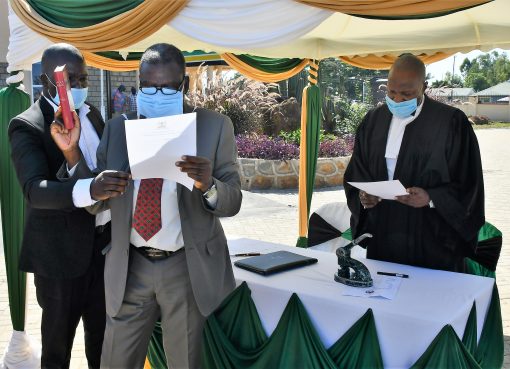The Civil Society Organizations (CSOS) has launched the ‘Okoa Uchumi’ Campaign with a slogan “Pockets are empty; shield Mwananchi from the high cost of living and protect local businesses,” in regards to the proposed financial bill FY 2022/23.
Okoa Uchumi Campaign aims at discussing the effects and highlighting recommendations to the contentious clauses within the proposed Kenya Financed Bill 2023 as well as safeguard public debt management and hold political leaders accountable in the utilization of funds.
The Campaign also seeks to work closely with stakeholders to resolve Kenya’s public crisis through advocacy of balanced and equitable budgets as a means to achieve debt sustainability and economic inclusion.
A national survey conducted by Twaweza East Africa on December 2022 confirmed that the most pressing issue plaguing the country is the cost of living with 49 percent of citizens highlighting it as the primary concern.
The data from the survey also reveals that more business owners reported that their businesses were further declining compared to the previous year and they might close down their businesses due to the heavy taxation leading to more lost revenue by the government.
Speaking during the briefing, Kenya Human Rights Commission (KHRC) Programme Manager Annet Nerima stated that the government tabled the Finance Bill 2023/24 before the National Assembly on 4th May 2023 for its first reading.
Nerima noted that the Departmental Committee on Finance and National Planning published the notice for participation and submission of memoranda as of 7th May 2023 to 20th May 2023 which held a two day workshop to review the proposed tax amendments under the category of tax as follows Value Added Tax (VAT), Exercise Duty and Income tax Proposed Amendments.
“We are in an economic crisis, for every Sh100 the government collects as revenue more than Sh65 goes to service the national debt. What’s more upsetting in the first three quarters is that the Kenya Revenue Authority (KRA) has been below target in the financial year 2022/23,” said Nerima.
KHRC Programme Manager remarked that out of the 11 amendments’ proposed in Value Added Tax (VAT), the coalition endorsed three while opposing a number of the proposals that are problematic and inconsiderate of the current economic situation.
She cited that an increase in VAT on petroleum products from the current 8 percent rate to the proposed 16 percent rate remained opposed as this would raise the cost of production and worsen the current state of the high cost of living.
Concurrently, Action Aid Kenya International Programme Manager, Women Rights and Governance Lina Moraa said that in the excise duty proposed, 18 amendments were considered by the members only 13 were endorsed in respect to the current cost of living.
She added that the members opposed the proposal that excise duty on mobile money transfer services be increased from 12 percent to 15 percent excisable value as it may lead to reduced transactions thus reduction in excise duty collection.
“The introduction of an excise duty on all imported sugar and locally produced excluding the ones purchased by pharmaceutical industry at Sh5per kilogramme is opposed as it would hurt local manufactured sugar as well as its farmers, “voiced Moraa.
On the other hand, Christian Aid Emergency Response Officer Milton Ogada urged the government to relook the conditions imposed by bilateral donors particularly the International Monetary Fund (IMF) by developing renegotiation program that addresses high debt stock which is taking up most of the expenditure on revenue and clarity provided on the beneficiaries of these taxes ensuring tax policy.
“Reduce tax expenditures which are taxes forgone to provide incentives to businesses with an estimation of about Sh333 billion yearly on an average between 2017 and 2021 respectively,’’ remarked Ogada.
Ogada anchored the need to fully decentralize the county government from the national government as this would eliminate duplication of function and save resources. Adding that some State Corporations still fulfilled functions budgeted for by county government.
Further, Ogada advocated for the empowerment of finance institutions like Ethics and Anti-Corruption Commission (EACC), Judiciary and Office of the Public Debt Management in an aid to fight corruption, and effectively pursue these cases thus enhancing their independence and capacity.
“The Finance Bill 2023 risks bleeding Kenyans dry through taxation. We urge the Parliament to reject this proposal to overtax the employed population in informal sectors instead focus on tax compliance of existing taxes and strongly push for accountability of all revenue collected and acquired debt,” voiced Ogada.
By Phinta Amondi and Rebeccah Maria





